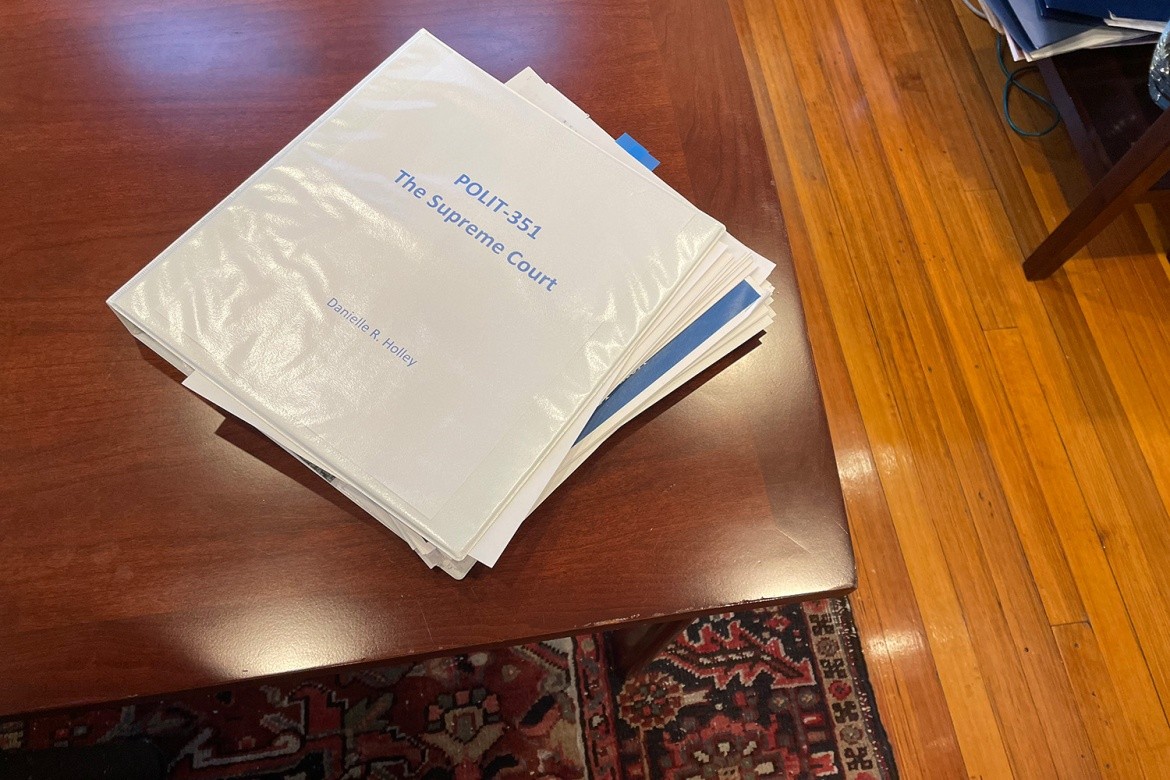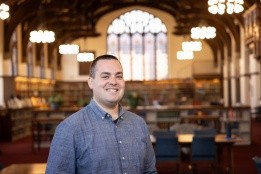A conversation on the Supreme Court and civil rights

Mount Holyoke College President and Professor of Politics Danielle Holley welcomed students, faculty, staff and alums to participate in a virtual session of her 2024 spring course on the Supreme Court as part of the BOOM! Learning Symposium.
There are several aspects that go into a Supreme Court decision, from the opinions written in the majority and dissenting viewpoints to previous cases and rulings that have a standing effect on the court. There’s also the impact that the ruling is going to have on the nation.
As part of Mount Holyoke College’s eighth annual Building on our Momentum (BOOM!) Learning Symposium, President and Professor of Politics Danielle Holley welcomed all students, faculty, staff and alums to participate in a virtual session of her 2024 spring course on the Supreme Court. The session discussed the Supreme Court and civil rights, and specifically the Students for Fair Admissions, Inc. V. President and Fellows of Harvard College and the University of North Carolina.
By focusing on one case in particular, the session was a deeper conversation on why the Supreme Court rules the way it does. Justice Ketanji Brown Jackson had to recuse herself in the Harvard portion of the decision, Holley told the class, as she is a graduate of their law school.
There were also discussions on whether the case overturned precedent previously set in Grutter vs. Bollinger. The Grutter ruling called for a twenty-five-year sunset for race-conscious programs. In his majority opinion, Chief Justice Roberts said he saw no end in sight for race-conscious programs, especially with Grutter being upheld in 2016.
The ruling in favor of the Students for Fair Admissions, which overturned affirmative action for college admissions, may not have a large impact on first-generation students and socioeconomic factors when it comes to college admissions but Holley believes that a dissent written by Justice Sotomayor may have an impact on legacy admissions.
“[Justice Sotomayor’s dissent] points to the fact that many of our admissions factors have racial implications and are heavily racially weighted, and so legacies are one of those,” Holley said. “Imagine, for example, that as women, we were prevented from attending a school like Harvard until the late nineteen sixties. Which means there are less legacies of moms than there are of dads. If Black students did not come in large numbers to UNC or Harvard until the late nineteen sixties and early seventies, there are not going to be very many Black legacies. Anytime you have a legacy factor in your admissions, it is heavily coded racially.”
The six to two and six to three rulings in the case led to several practical implementations that you now see on college applications.
“Colleges and universities can no longer consider race as a demographic in their admissions policies, and that data is now suppressed,” said Holley. “Colleges can, however, consider race if it is part of a discussion on how a student's background has had an impact on who they are today and what they want to do with their future. This is why many colleges will now offer optional and additional essays.”
According to President Holley, the results of these implementations are coming.
“We will not know the results of the admissions cycle nationwide, the results of this [overturn of] affirmative action in higher education for another month or so,” Holley said.
While this session focused on one particular case, President Holley said that the class as a whole demonstrates that the court is not always as partisan as it seems.
“I think one of the interesting things of this course is that you see that the Supreme Court was not always partisan in the way that we think of it today,” Holley said.
“For example, in abortion, the Casey opinion. Roe was written by a Republican appointee; Casey, which is the other major abortion precedent prior to Dobbs, was also written by a plurality of conservatives. Same thing in affirmative action; only seven years before SFFA [Students for Fair Admissions], an opinion that upheld affirmative action was written by conservative Republican Justice Anthony Kennedy.”
President Holley is a noted legal scholar on issues of civil rights and diversity in education. In 2017, the Diversity, Equity and Inclusion Steering Committee envisioned and began planning a community-wide learning conference – BOOM! was born later that spring.
Watch a replay of the session, including the Q&A.
